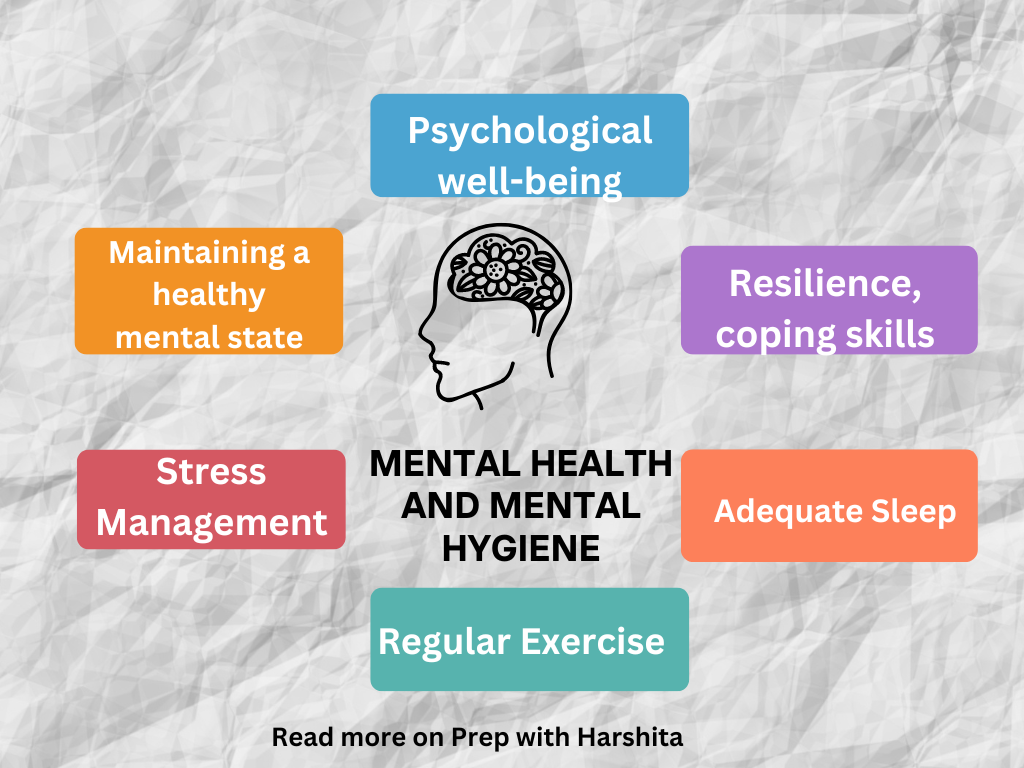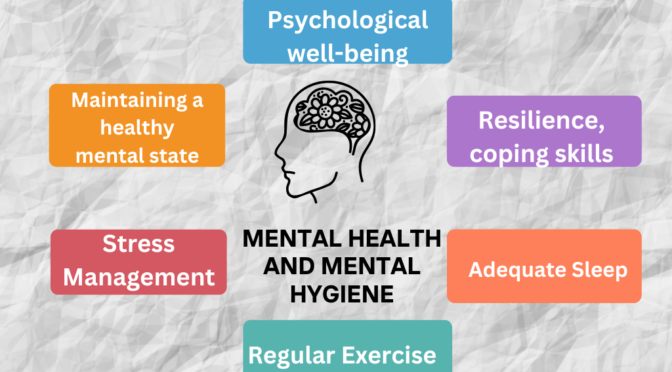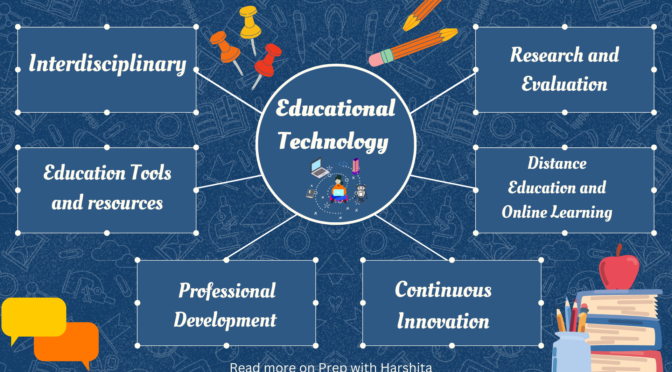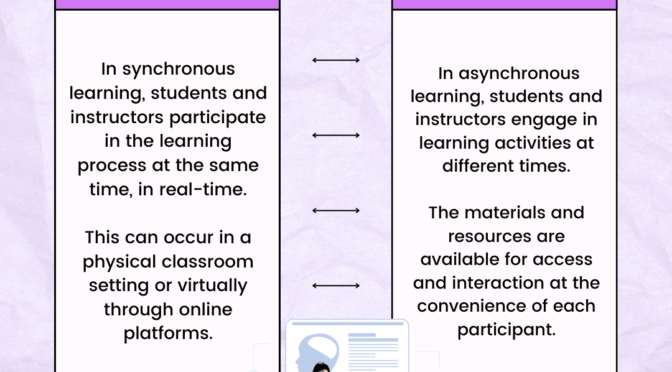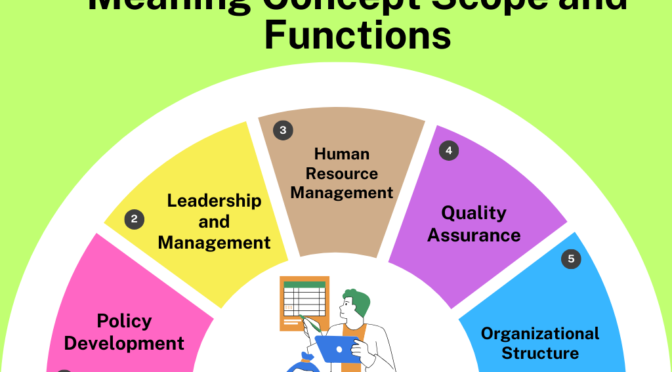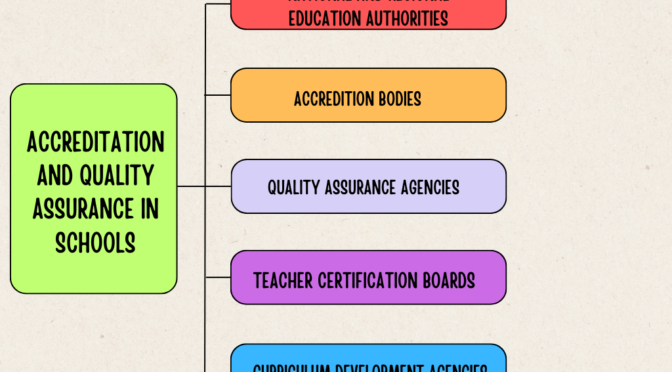Mental health and mental hygiene are related concepts that focus on the well-being of the mind and emotions. While they are often used interchangeably, they can have slightly different connotations in different contexts.
Mental Health:
- Definition: Mental health refers to a person’s overall psychological well-being. It encompasses emotional, psychological, and social aspects of an individual’s life.
- Positive Mental Health: It is not just the absence of mental disorders but also includes the presence of positive factors such as resilience, coping skills, and a sense of purpose.
- Factors Affecting Mental Health: Genetics, biology, environment, life experiences, and family history can all contribute to mental health.
Also Read : Ivy Lee Method
Mental Hygiene:
- Definition: It refers to practices and behaviors that promote mental health and prevent mental disorders. It involves maintaining a healthy mental state through various strategies and habits.
- Preventive Measures: Mental hygiene includes activities such as stress management, regular exercise, healthy eating, adequate sleep, social connections, and seeking professional help when needed.
- Promoting Well-Being: The goal is to prevent the development of mental health problems and enhance overall psychological wellness.
Also Visit : Prep with Harshita
